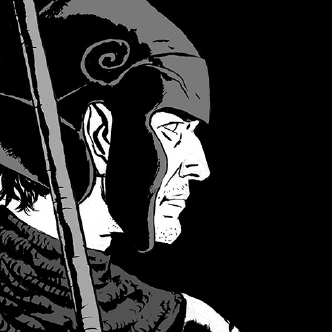John Saxon, 1936-2020
- Jarek Kupść

- Sep 6, 2020
- 3 min read
John Saxon – what can you say about a man who beat Marlon Brando in an arm-wrestling match, pulled a knife on Burt Lancaster, presided over a Mexican peasant revolt, battled beyond the stars, and faced-off with Freddy Krueger?

Born Carmine Orrico in 1936 in New York, John Saxon adopted an improbable name that defied his handsome Italian looks. Studying with Stella Adler and Paramount's acting coaches erased any hint of his working class Brooklyn background. Armed with new identity and perfect diction, at 21, Saxon entered the movie business – as a teenage beefcake. Within a few years, he established himself as a reliable youthful support in films by renowned directors: Vincente Minnelli, Otto Preminger, and John Huston. It was a great start.

John Saxon's top billing in War Hunt (1962) was an early highlight of his acting abilities. It is a low-budget, unusually persuasive anti war film, set in Korea. The protagonist, a simplistic soldier on a personal war path, is clearly psychotic – yet Saxon turns him into a very compelling study. The complicated role of Private Endore required toughness, which the actor had in spades, but also a perplexed sensitivity of someone aware of his own madness. Saxon is especially effective in the key plot line involving a Korean child to whom Endore becomes a surrogate father. The arc of their relationship remains a chilling reminder of the emotional toll children endure in war – and carry long after the fighting ceases.

War Hunt took place in Korea, but the edginess of Saxon's performance anticipated moral complexities of the impending war in Vietnam. It wouldn't be too much of a stretch to recognise in Endore a distant cousin of Col. Kurtz. (A young Francis Ford Coppola participated uncredited in War Hunt as a truck driver.)


The film is also noteworthy for giving Robert Redford his first film role – as the witness-narrator. In another key part, the future director Sidney Pollack made a very strong impression. In 1979, Saxon reunited with Redford and Pollack in the highly enjoyable The Electric Horseman, one of his rare mainstream appearances.

But for many fans, Saxon's most beloved character was Roper – a gambling martial arts expert drafted into a deadly tournament in Enter the Dragon (1973).

The film's plot is a tongue-in-cheek action extravaganza designed as a showcase for Bruce Lee's magnificent skills. Despite Saxon's supporting part, the actor shared the top billing with Lee – the studio considered placing a solitary Asian name above the title too risky in the age of Vietnam War. Saxon took on the project with dedication, putting his own martial arts experience to good use. He trained hard with Lee, who also served as the fight choreographer. As a result, Roper's fights are believably brutal, if sometimes embellished by Saxon with a humorous wink.

But it was between the mayhem where we could see a relaxed, charming Saxon – a scoundrel with a golden heart and a sense of honour. The actor gave levity to Enter the Dragon, reportedly writing some of his funnier lines.
Saxon's unique skill-set ensured a steady flow of work for six decades, both in film and television – his credits list is as enormous as the variety of parts he portrayed. He was dependable, humble, and charismatic. Yet mainstream stardom mysteriously eluded him – perhaps unjustly. But he did leave us a lot to enjoy – in every imaginable genre.

John Saxon (Carmine Orrico), actor, born 5 August 1936; died 25 July 2020



Comments